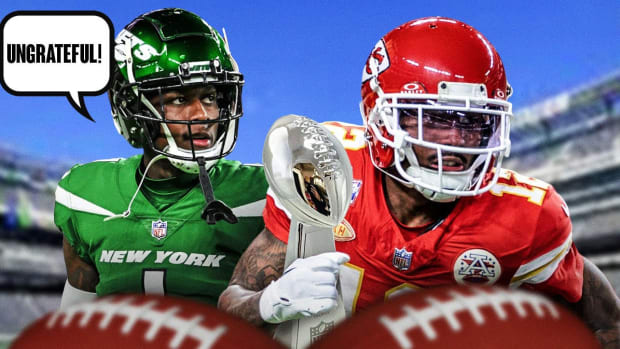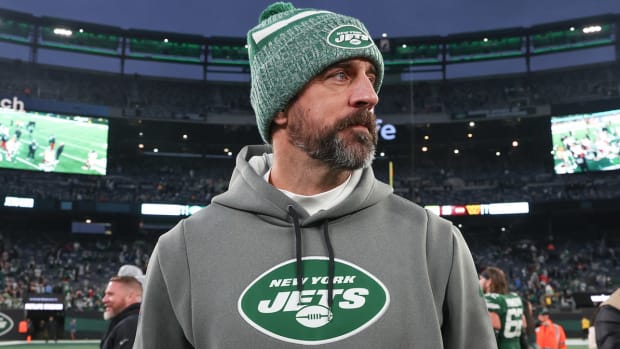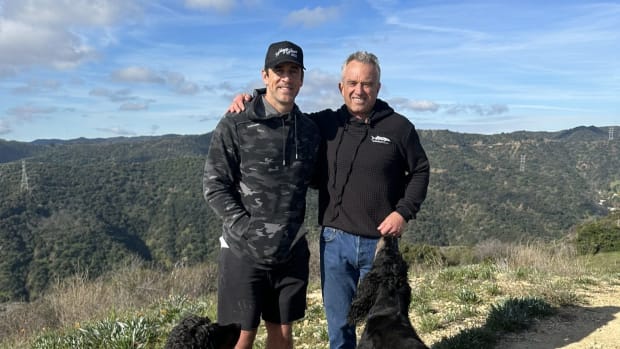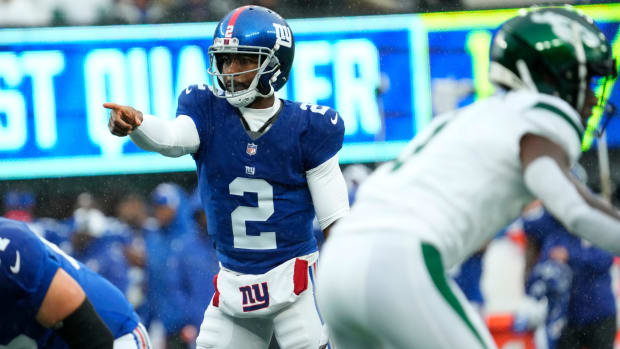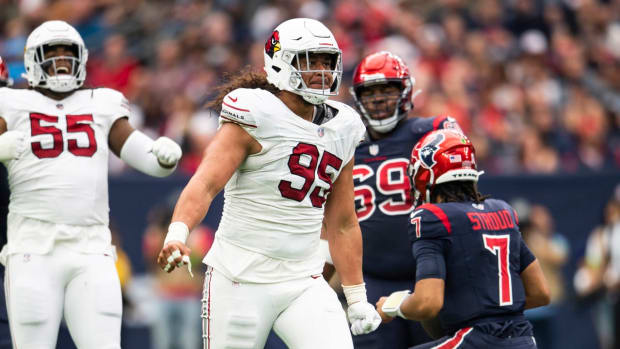Instant Replay Could Have Saved Dennis Erickson's Job 21 Years Ago. Even He Thinks It Has Gone Too Far
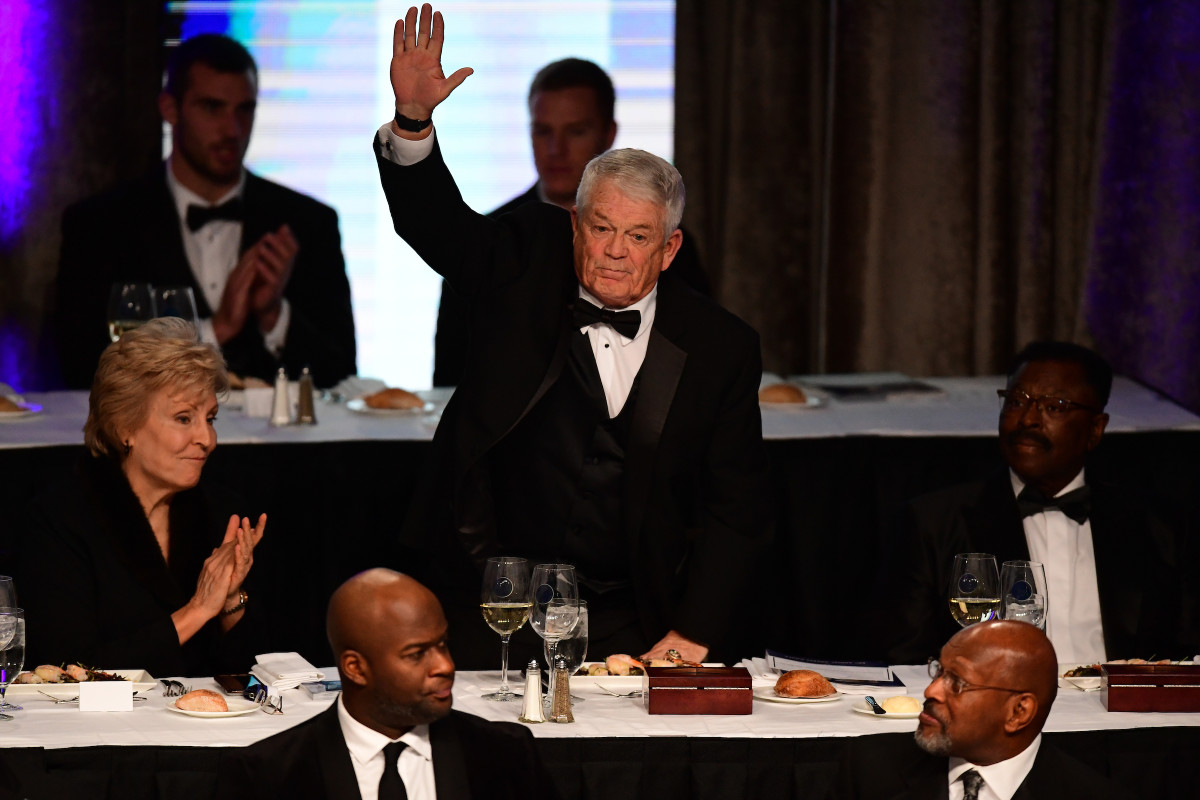
In 1998, one play helped usher in the modern era of instant replay. And the head coach at the center of one of the biggest missed call in NFL history thinks that the league might be going too far in how instant replay is currently being implemented.
Dennis Erickson remembers the play like it was yesterday. This isn’t a great surprise as this one play, this one missed call likely cost him his job as head coach of the Seattle Seahawks. It was a Week 14 game at the New York Jets, who were late in the game and in the red zone, driving down the field. Jets quarterback Vinny Testaverde made a 5-yard sneak that was called a touchdown and what would become a 32-31 score line (which is how the game ended).
The issue is that Testaverde didn’t cross the goal line with the ball. Seahawks defensive back Jay Bellamy came up and delivered the hit that stopped Testaverde a half-yard short. Testaverde’s helmet crossed into the end zone.
The ball did not.
The call likely cost the Seahawks, who finished 8-8, a berth in the NFC Wild Card. It also likely cost Erickson his job after four years in Seattle without a playoff appearance. Erickson was fired after the season with a 31-33 record in Seattle.
In 1999, replay was instituted, a system somewhat resembling the version currently used this season. This play, which television replay was clearly and badly missed, likely provided the push to institute replay.
“That’s what started replay, basically. Shoot, he was a yard short, you know? The helmet came off and we would have had a pretty good chance of making the playoffs if we won that game,” Erickson told SportsIllustrated.com.
“As it turns out, we didn’t and they made a coaching change after that season. People can say what they want but it was a really costly to our football and really costly to my staff. And I’ll tell everybody, ‘The only thing that I did really good in the NFL and bring instant replay to the game.’ You could see it on the field and they couldn’t change it. And they knew it too, the officials.”
It hasn’t been all smooth sailing since 1999, however. Instant replay has missed calls and now faces the issue of being over-used and messing with the integrity of the game, paradoxical as it might seem.
These are things that concern those like Erickson, who certainly understands more than most the need for replay. Sometimes though, it seems the mechanism is being used too much according to Erickson.
This past Sunday, a reverse call gave the Jets a pass interference call that sustained what would become a game-winning drive in a 22-21 win over the Miami Dolphins. Were it not for that call, the Jets drive likely would have been halted well outside field goal range.
Instead, the drive was sustained and kicker Sam Ficken’s 44-yard field goal gave the Jets the win as time expired. Dolphins head coach Brian Flores yelled at the officials after review changed the call from an incomplete pass to pass interference. His protests continued as he ran off the field and yelled at the officiating crew.
Players in the Dolphins locker room seemed similarly upset at the reversal of the call on the field.
Moments like this, Erickson said, is not what instant replay was supposed to correct. It is ironic that the man perhaps most affected by one of the NFL’s most infamous non-calls now sees instant replay as perhaps hurting the game as much as it is helping correct things.
“I think they keep changing it. Now I see replay as pass interference calls and I can see that – what happened in New Orleans last year. They change the pass interference, what, against Miami over the weekend. It’s so much of a judgment call. What I always thought it was for was things that were obvious,” Erickson said.
“You need it, you don’t want to be wrong. But you can’t slow the game down totally. I think it’s gone a little too far but if it’s gone, then we got to make the calls. In the NFL it’s not bad because you don’t have two chances to have [a replay]. But now the pass interferences are involved…and there can be pass interference on every play. Hopefully, I mean like, holding up front, you see so many of those anymore but you can’t go instant replay on offensive linemen the whole game. I think it’s good to get things right but somehow they have to find a place for it to work.”
A major complaint against the current standard of instant replay is how much it is being utilized and potentially taking the flow out of the game. The stops to check calls, beyond just scoring plays, is seen as something that is hurting the old school approach to the game.
Erickson spoke to SportsIllustrated.com on Tuesday at a press conference held by the National Football Foundation. Erickson was honored along with several others as part of ‘The 2019 College Football Hall of Fame Class Presented by ETT.’
After being fired by the Seahawks at the end of the 1998 season, he returned to coaching in college at Oregon State. He would get one more shot at the NFL, serving as head coach of the San Francisco 49ers for two seasons starting in 2002.
Replay would have likely saved his job in Seattle if used that night at the Meadowlands. But big picture, he’s also concerned that the pendulum has swung the opposite direction and that over-implementation of replay is now harming the game.
“Without a question. If you have any momentum going, it changes the momentum. There’s a purpose for it [with] the plays that really make a difference, like that play 21 years ago made a difference in a lot of different ways. People don’t realize the team had a chance to go to the playoffs, didn’t. A coaching staff that was getting things going, they brought a new owner in and they changed it because we were pretty good those days and getting better. But that particular play kind of screwed it up. I remember that play more than any play I’ve ever been involved in in football,” Erickson said.
“I’m over it, obviously.”
Erickson leans back in his chair and smiles then winks.

